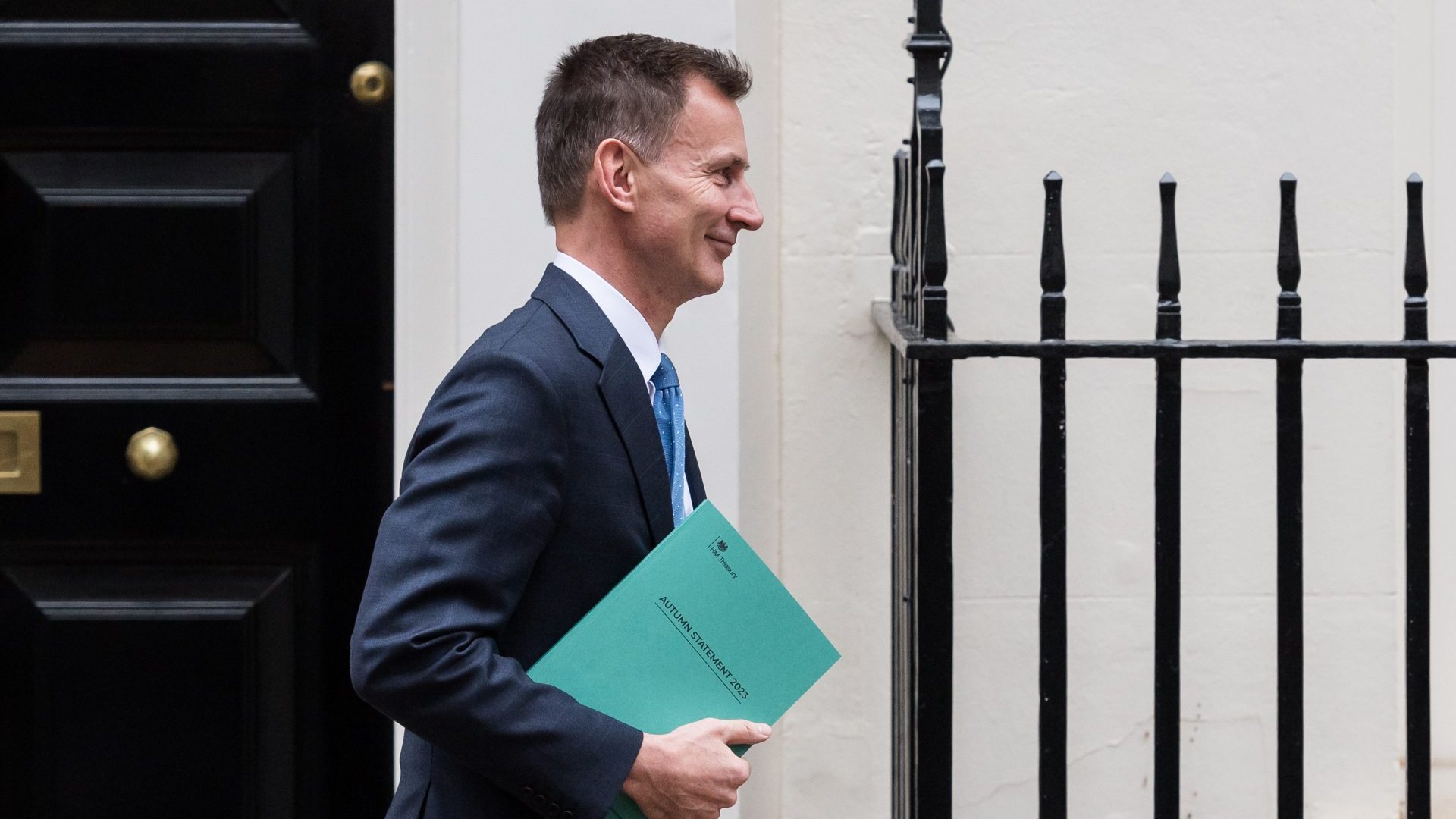As N’Sync so nearly sang: it’s gonna be May.
Rishi Sunak could, in theory, run out the parliamentary term he inherited as far as January 2025, but expectations as to when he would actually call the next election have varied. The consensus until a few weeks ago expected an Autumn election, potentially in November – not least because no-one wants their activists to have to leaflet and canvas over the Christmas break.
But there have been signs for the last few weeks that Sunak is likely to call the election earlier. The strongest signal until today was the paucity of bills in the King’s Speech: had you expected a full parliamentary term, you would almost always put more legislation in it than was there. So Westminster minds started to wonder… was Sunak looking at May?
In his autumn statement this afternoon, chancellor Jeremy Hunt has all but answered that question. The reveal came in the big obligatory rabbit-in-the-hat of the budget speech – a cut of national insurance from 12% to 10%. This is a classic pre-election giveaway cut, on a tax most of us pay, most of us notice, and it is cut to a nice round number.
So far so usual. But what was especially telling was that Hunt decided that the cut in tax would be made through what he called “urgent legislation”, so that it could be introduced on January 6 – an unfortunate clash of date with the storming of the US capitol building by Donald Trump’s supporters – instead of next April.
This is a very unusual move. Generally, chancellors try not to change the tax system in the middle of the tax year – it adds cost and complexity to do so, and is tricky to administer. Hunt’s going to all of this effort to bring forward a tax cut for working people by about three months. There has to be a reason for that.
If it was simply putting more money into people’s pockets, there would be easier ways to do that – this seems to be specifically about having a tax cut that people hopefully notice by about March or April. Coincidentally, March is when an early May election would have, by law, to be announced. It is extremely difficult to think of any other reason to rush through this particular measure.
The announcement was enough for at least one prospective parliamentary candidate to sigh and head off to cancel the holiday they had booked for May, such is their newfound confidence that the election will be early. Expect the consensus to shift very quickly to expecting a May election – in the coded world of whispers on which Westminster runs, this is as clear as signals tend to get.
That doesn’t mean a May election is inevitable, of course. Plans can always change and polls can always get worse. Something may happen to change Sunak’s calculation on the timings before the situation is entirely locked in. Given the nature of the modern Conservative Party, it’s not even 100% a given that Sunak will be the prime minister at the time of the next election.
However, pretty much everything in this autumn statement signals an election. The giveaways have been made, and the implausible spending plans upon which they rely will need to be fixed at some point – no chancellor would want to have to make another autumn statement this side of an election. We may not even get a spring budget.
This government feels like it’s gone on forever, despite Rishi Sunak only having been prime minister for one year. It is now signalling that a potential end is in sight: a May election day would be less than six months away.












